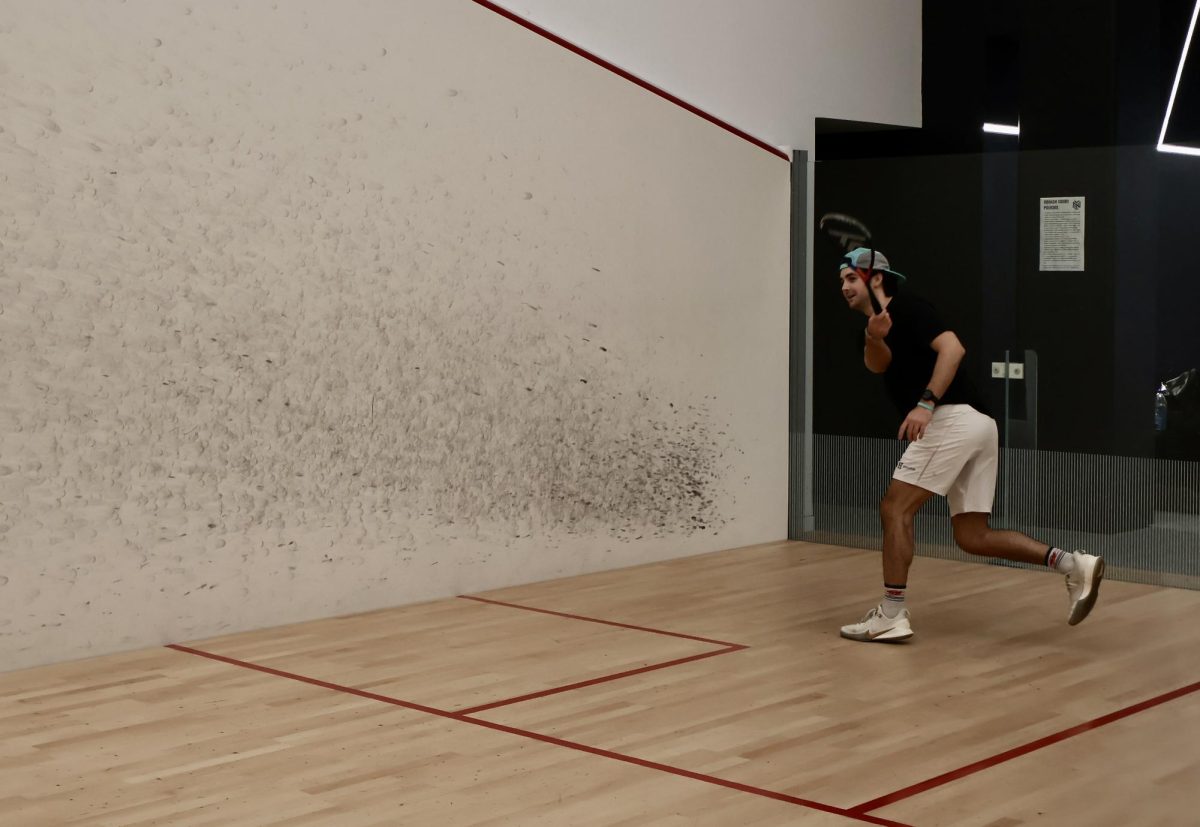The NYU women’s and men’s club squash teams are ranked second and 15th, respectively, in the College Squash Association rankings for the 2023-24 season. The women’s team finished their season 8-1 while the men finished 7-5. This season, the women’s team is undefeated, beating Fordham University and Smith College on Oct. 6. The men’s team plays their first matches on Oct. 20 against Boston University and Columbia University.
Nearly 50 students try out every season, but both teams only have 12 to 13 spots on their roster. According to senior Gaurav Turaga, president and co-captain of the men’s team, most spots are filled with players who could have played at the varsity level at other schools but chose to come to NYU.
“All NYU Club Sports are formed, operated, and governed by students who compete or perform against other sports clubs from other Universities, colleges, or nearby organizations,” says the NYU athletics website. NYU squash’s status as a club, rather than varsity, means it has fewer resources provided by the school, and typically a lower level of play.
The head coach of both teams, Satyajit Seshadri, has been coaching the club for seven years and by his second, was already leading the teams to nationals. Since then, he has seen remarkable growth.
“NYU squash has come such a long way,” Seshadri said. “When we started, we had a very bare-bones women’s team, and now we have a full team.”
Although both teams are at the club level and the NYU Athletics webpage advertises the club as “open to ALL skills and experiences,” recruitment is extremely competitive. The team requires high levels of commitment from its players, with practices beginning the second week of school and demanding at least four hours a week.
“In my four years of playing, this is the best team we’ve ever had,” Turaga said. “In the past, we have only had one or two varsity-level players, and this year we have at least six.”
Despite the teams’ performance, facilities are not always accessible to players due to their standing at NYU as a club sport. The Paulson Center has NYU’s only two squash courts on campus, which are open to all students and only allocated to the teams for four hours a week. In order for a captain to request more time, they must do so as individuals, with no designation that they are representing their team.
Coaches of varsity sports are typically responsible for booking practice spaces. For squash teams, however, the team’s training schedule is controlled by the athletic director and out of the coaches’ control. The teams usually end up practicing late at night because the courts have been booked up by other students who play squash recreationally.
“The athletics department is clearly not prioritizing the training that we need,” sophomore co-captain of the women’s team Grace Huang said.
The players feel the team has the potential to perform well if taken seriously by the university. Seshadri does note, however, that the athletics department is making an effort to provide more practice space elsewhere.
“The school is trying,” Seshadri said. “I will say that they really did a good job this year compared to past years. They’ve given us a chance to use the facility at Open Squash, which is a big squash center in New York City. Ideally, I would like more courts, but it’s a start.”
Beyond the facility dispute, the teams also struggle with internal issues, such as the unequal allocation of resources and funding causing disparities between the men’s and women’s teams.
The women’s team was only established last season, and despite their success, they face challenges in arranging matches. The men’s and women’s teams both receive the same allocation of funding, but the women’s higher travel costs create an inequality between the two. They have had to travel out of New York City for most of their matches, unlike the men’s team who only have to travel to Fordham.
The club believes the ultimate solution to the issues of facility usage and resource allocation — which is agreed upon by both the coach and team captains — would be for both teams to obtain varsity status. A varsity designation would mean increased resources for the current competitive squash team, leaving the club team available for less experienced players.
While they may remain at club level, the men’s and women’s teams are not to be discounted. Regardless of status and all other challenges, NYU squash plans to push onward and toward success.
“The ideal situation would be to get varsity status down the road knowing that it’s such a competitive sport that’s growing so fast within the United States,” Seshadri said. “But right now it’s about creating exposure and making sure everybody has a fair chance.”
Contact Amelia Raymond at [email protected]

























































































































































